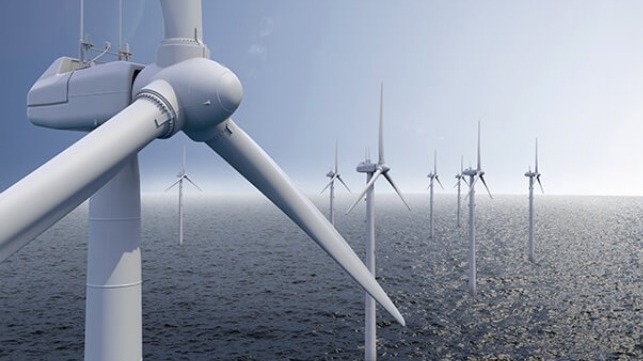Japanese Research Studies Wake Effect’s Impact on Floating Wind Farms

The Japanese Government's New Energy and Industrial Technology Development Organization (NEDO) is funding a research project to enable large-scale deployment of floating offshore wind turbines. Japan expects to become one of the leaders in the deployment of floating offshore wind turbines and this project is the latest step to focus on the optimal design methods based on the geographical challenges of Japan.
The project focuses on the research required to develop technology that will evaluate a phenomenon known as wake effect that is unique to floating wind turbines. It is one of the major challenges to be overcome in the development and deployment of floating wind turbines and this project seeks to comprehend the challenges.
Wake effect occurs downwind of turbines during blade rotation. According to the project organizers, in large wind farms comprised of a large number of turbines, wake effect results in several negative outcomes. One of the challenges is greater turbulence around the wind farm. In addition, there is a reduction in the electricity generation on the downwind side of the wind farm and an increase in the load acting on the turbines.
Project organizers report that the wake effect is mostly understudied to date. The research team believes their work will solve the technical issues for large floating offshore wind farms and make a significant contribution to enabling the introduction of the technology at scale.
The researchers will be working to develop a greater comprehension of the wake effect and the mutual interference phenomenon. They will be working to develop technology for the prediction and evaluation which they believe will provide the basis for further academic-industry collaboration.

that matters most
Get the latest maritime news delivered to your inbox daily.
NEDO selected the partners for the project in June 2023 and the research will be taking place in a large wind tunnel facility at Kyushu University in Japan. Other participants in the project include Toshiba Energy Systems and Hitachi Zosen, as well as NSK, a Japanese bearing company.
As part of the project's research, NSK will be working to enhance the reliability of bearings for wind turbines. One of the challenges of wake effect is load changes acting on the turbines and NSK will be working to understand the attributes that result from the wake effect. Understanding the impact on the turbines will enable the company to enhance the reliability of the bearings which in turn they believe will support more widespread adoption of floating wind for power generation.
